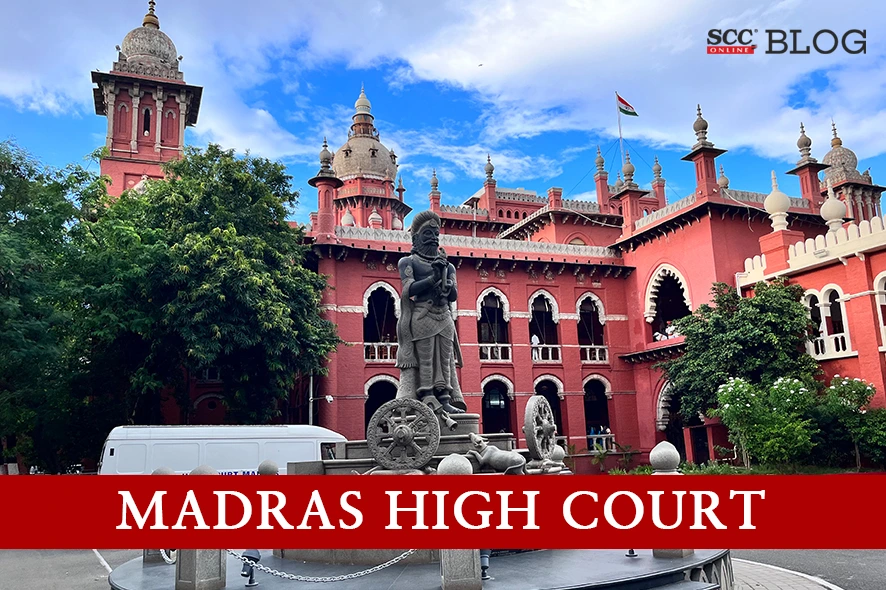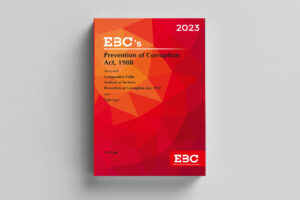Madras High Court: In a criminal revision filed against the judgment based on a transfer order passed by the Principal District Judge (‘PDJ'), Vellore wherein accused / K Ponmudi, Former Minister of Transport and a Member of the Tamil Nadu Legislative Assembly who was alleged to have acquired and come into possession of properties and other pecuniary resources in his name and the names of his wife and sons, which were disproportionate to his known sources of income, was acquitted. N. Anand Venkatesh, J. has held that transfer of the case against K Ponmudi from PDJ, Villupuram to PDJ Vellore was ex-facie illegal and no non-est in the eye of law. Further, it directed the Registry to issue notice to the accused on the file of the PDJ, Vellore for the hearing on 07-09-2023.
An FIR was registered by the Anti-Corruption Department on 14-03-2002 under Section 109 of Penal Code, 1860 (‘IPC') read with Sections 13(1)(e) and 13(2) of the Prevention of Corruption Act, 1988 against K Ponmudi, his wife, his mother-in-law and his friends (‘accused persons').
The Court felt that there is something seriously amiss about the procedure adopted in transferring the case to a different Court and that too at the end of the trial. Thus, the Court exercised its powers under Sections 397 and 401 Code of Criminal Procedure, 1973 (‘CrPC') and Article 227 of the Constitution as there is a calculated attempt to undermine and thwart the administration of criminal justice.
The Court noted that the case was transferred to the PDJ, Villupuram, which is a designated special court for trial of criminal cases relating to elected members of Parliament and members of the Legislative Assembly of Tamil Nadu. On 26-04-2022, PDJ wrote a letter to the High Court requesting permission to conduct a special sitting for expeditious completion of the case in May. However, the said request was rejected by the High Court on 07-06-2022. The Court said that the High Court has refused permission when the dates for which permission had been sought had long expired. Further, the official memorandum not only communicates the refusal of permission but also injuncts the PDJ from exercising her judicial powers over the case by directing that the case should not be taken up until further orders. A month later, the then Administrative Judges of Villupuram sent up a note directing the case pending on the file of the PDJ, Villupuram to be transferred to the file of the PDJ, Vellore. This note was approved by the Chief Justice.
The Court said that the narrative reveals a shocking and calculated attempt to manipulate and subvert the criminal justice system. There is not even a speck of legality on anything that has been done on and from 07-06-2023 when the High Court administration injuncted the PDJ, Villupuram from proceeding with the case. The dubious and curious process of transfer followed by the trial and judgment of the PDJ, Vellore are wholly illegal and are nullities in the eyes of law. The Court said that by 06-06-2023, a case which had thus far been lingering on for years started to move with great alacrity.
The Court said that the use of an official memorandum to restrain a Principal District Court from exercising judicial functions is something unheard of. It may be possible to interfere with judicial proceedings of a lower court on the judicial side. But to interfere with the same through official memorandums on the administrative side is palpably illegal and without any legal sanctity.
The Court also said that the power to transfer a criminal case from one District to another is a judicial power vested in a High Court under Section 407 CrPC. Placing reliance on Kamlesh Kumar v. State of Jharkhand, (2013) 15 SCC 460, the Court said that the power under Section 407 CrPC is a judicial power which cannot be exercised by judges on the administrative side and that too by way of an administrative note. Further, the administrative power of transfer under Article 227 can be exercised only by the Full Court and not by any one or more judges on the administrative side.
The Court noted that in this case, the transfer was made to PDJ, Vellore for no reason whatsoever. The jurisdiction of a criminal court for inquiries and trials is statutorily prescribed under Chapter XIII of the CrPC. It is not open to the High Court either under Section 407 CrPC, or under Article 227 to cherry-pick cases and arbitrarily transfer them to any Court without any reason.
The Court further noted that there is no authority either under the Constitution, the Letters Patent or any provision of law authorizing two judges to exercise powers, on the administrative side, to transfer a pending criminal case from one District to another and that too by way of a note. Thus, the note of the Administrative Judges directing the transfer of the case from PDJ, Villupuram to PDJ, Vellore is ex-facie illegal and non-est in law.
Concerning the question that whether the approval of Chief Justice clothe the note of the administrative judges with any legality, the Court said that, on the administrative side, the administrative control of the High Court vests in the Chief Justice alone. He is the master of the roster. He alone has the prerogative to constitute benches of the court and allocate cases to the benches so constituted. However, the Chief Justice does not enjoy administrative power to transfer a criminal case pending in a District Court to another District. No such power exists or has been shown to exist either by law or by convention. Thus, the approval of the Chief Justice does not clothe the note order of the administrative judges with any legality. Therefore, the Court held that the official communication dated 12-07-2022 directing the transfer of the case from PDJ, Villupuram to PDJ, Vellore, the transfer to the PDJ, Vellore under the orders of the PDJ, Villupuram followed by the trial and the judgment delivered thereafter are all coram-non-judice.
[Suo Motu RC v. Vigilance and Anti-Corruption wing, 2023 SCC OnLine Mad 5304, decided on 10-08-2023]











